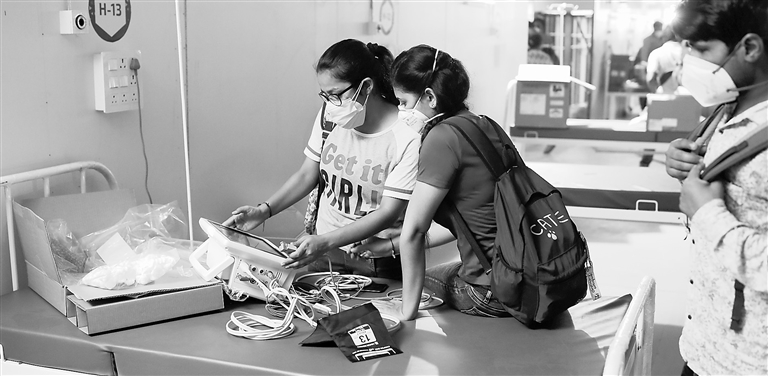
COVID vaccines developed by Pfizer and Moderna appeared to remain effective against a subtype of the Indian virus variant, according to early findings presented Tuesday from researchers at Emory University. The findings, posted to bioRxiv late Monday ahead of peer review, suggested the B.1.617.1 variant dealt an approximate seven-fold reduction in protection from prior infection and vaccination. However, the majority of blood samples from prior infection and all samples from vaccinated individuals appeared to remain effective at blocking the variant. The team of researchers tested two dozen blood samples from previously infected individuals, and samples from 10 individuals who received Pfizer’s two-dose shot, and 15 samples from people who received Moderna’s two-dose shot. The study found that 79 percent of samples from previously infected individuals, and all blood samples from vaccinated individuals, blocked the Indian virus variant. In other words, about 20 percent of samples from previously infected individuals lost their ability to block the Indian variant. The samples were collected about one to three months after individuals recovered from COVID-19 symptom onset, and the samples from vaccinated individuals were collected about 20 to 50 days post-second dose of mRNA vaccine, researchers said. “This suggests that protective immunity by the mRNA vaccines tested here are likely retained against the B.1.617.1 variant,” the study reads. “As the B.1.617.1 variant continues to evolve, it will be important to monitor how additional mutations within the spike impact antibody resistance, viral transmission and vaccine efficacy.” In a call with reporters Tuesday, Dr. Mehul Suthar, corresponding study author and assistant professor at Emory University, said the findings highlight the need for increased vaccination rates in India and globally as variants continue to emerge and circulate. Suthar pinned the variant subtype on par with the concerning South African variant, in terms of a similar approximate seven-fold reduction in the power of neutralizing antibodies from vaccination and prior infection. However, there isn’t enough data yet to indicate whether the Indian variant poses a heightened risk of more severe illness or death, he noted. Meanwhile, several Brazilian states halted AstraZeneca COVID-19 vaccinations among pregnant women Tuesday after the national regulator, Anvisa, recommended an immediate suspension following a death in Rio de Janeiro. AstraZeneca previously said that their clinical trials excluded pregnant women and those who were breastfeeding, and animal studies didn’t indicate “direct or indirect evidence of harm regarding pregnancy or fetal development.” (SD-Agencies) | 
